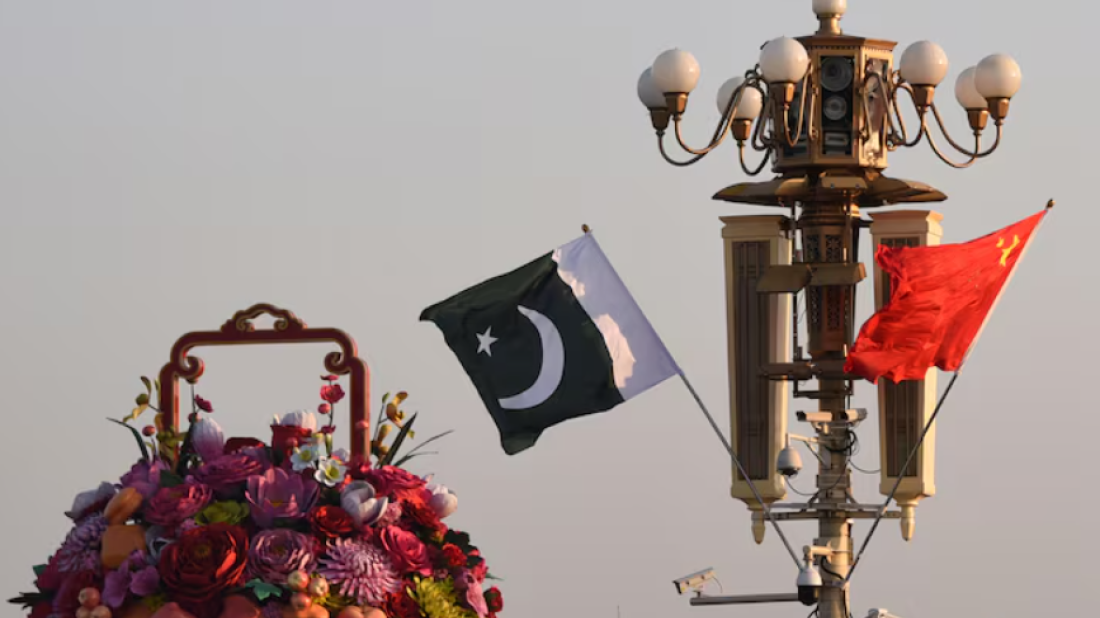Rubio champions Iran dialogue ahead of Geneva talks and reaffirms support for Hungary’s PM
U.S. Secretary of State Marco Rubio said Washington is ready to pursue diplomacy with Iran as nuclear talks resume in Geneva, using a visit to Budapes...

China has restated its steadfast support for Pakistan during high-level talks in Beijing, even as it calls for peaceful resolution of conflicts and enhanced regional cooperation in South Asia, where tensions have been on the rise.
In a strong show of solidarity, China has reiterated its unwavering support for Pakistan, its “ironclad friend,” while calling for increased diplomatic engagement and regional trust-building amid mounting tensions across South Asia.
Speaking alongside visiting Pakistani Foreign Minister Ishaq Dar in Beijing, Chinese Foreign Minister Wang Yi pledged deepened cooperation in security and economic affairs, reaffirming the strategic partnership between the two nations. “China supports Pakistan in firmly safeguarding its national sovereignty and territorial integrity,” Wang stated during a trilateral dialogue involving Afghanistan’s Acting Foreign Minister Amir Khan Muttaqi.
Foreign Minister Dar, addressing regional concerns following heightened hostilities between Pakistan and India, declared Islamabad’s resolve to “firmly safeguard its national sovereignty and territorial integrity,” while also welcoming China’s diplomatic role. The visit comes on the heels of India’s recent military operation dubbed “Operation Sindoor,” which escalated tensions with Pakistan and raised alarms across the region.
In a carefully calibrated message, Wang Yi emphasized the importance of dialogue between India and Pakistan. “We encourage all parties to resolve disputes through peaceful dialogue and mutual respect,” he said. While firmly backing Pakistan, China sought to present itself as a stabilizing force amid deepening geopolitical fault lines in South Asia.
The meeting also marked a renewed trilateral engagement between China, Pakistan, and Afghanistan, as Beijing pushes for regional stability through strategic connectivity and economic integration. The three sides agreed to further expand the China-Pakistan Economic Corridor (CPEC) into Afghanistan - a move seen as pivotal to Beijing’s Belt and Road Initiative and post-conflict development in the region.
The trilateral dialogue focused on strengthening cross-border coordination, counterterrorism efforts, and diplomatic normalization. Notably, Pakistan and Afghanistan agreed in principle to exchange ambassadors for the first time since the Taliban’s return to power, signaling a tentative thaw in bilateral ties.
Wang Yi hailed the agreement as a milestone. “China encourages Afghanistan and Pakistan to build mutual trust, resolve disputes through dialogue, and jointly promote peace and development,” he said.
China’s intensified engagement with both Pakistan and Afghanistan comes at a time of shifting regional dynamics. With US. influence receding from the region and India asserting a more muscular posture, Beijing appears increasingly eager to position itself as the anchor of regional diplomacy and security.
Analysts say China’s support for Pakistan serves both geopolitical and economic objectives by deterring Indian influence in South Asia while securing trade and energy corridors through restive border regions.
“China's overt diplomatic and material support for Pakistan underscores the strategic depth of their partnership,” said Dr. Lina Chen, a South Asia analyst based in Shanghai. “At the same time, urging dialogue with India allows China to maintain its image as a responsible power, even while aligning more closely with Islamabad.”
With tensions simmering and regional alliances in flux, China’s balancing act - pledging firm loyalty to Pakistan while promoting regional dialogue - reflects its growing ambition to reshape the contours of South Asian geopolitics.
U.S. Ambassador to NATO Matthew Whitaker said China has the power to bring an end to Russia’s war in Ukraine, arguing that Beijing is enabling Moscow’s military campaign.
Austria’s Janine Flock won the gold medal in the women’s skeleton event at the Milano-Cortina 2026 Winter Olympics on Saturday.
Iran’s Supreme National Security Council Secretary Ali Larijani said the United States could evaluate its own interests separately from those of Israel in ongoing negotiations between Tehran and Washington.
U.S. Secretary of State Marco Rubio on Sunday (15 February) called it “troubling” a report by five European allies blaming Russia for killing late Kremlin critic Alexei Navalny using a toxin from poison dart frogs.
Ukrainian President Volodymyr Zelenskyy said on Saturday that Russia’s decision to change the leadership of its delegation for upcoming peace talks in Geneva appeared to be an attempt to delay progress.
U.S. Secretary of State Marco Rubio said Washington is ready to pursue diplomacy with Iran as nuclear talks resume in Geneva, using a visit to Budapest on Monday (16 January) to reaffirm both U.S. negotiating aims and strong ties with Hungary ahead of its April election.
Geneva is set to host two sets of negotiations on Tuesday, with U.S. officials meeting Iranian representatives in the morning and a trilateral session on Ukraine scheduled for the afternoon. The talks aim to advance a resolution of Iran’s nuclear programme and a U.S.-brokered peace plan for Ukraine.
Iran’s Revolutionary Guards navy held military exercises in the Strait of Hormuz on Monday (16 February), state-linked media reported. The drill took place a day before renewed nuclear negotiations between Tehran and Washington in Geneva.
A man accused of carrying out Australia’s deadliest mass shooting in nearly three decades appeared briefly in a Sydney court on Monday (16 February), facing terrorism and murder charges over the 14 December attack on a Jewish Hanukkah celebration at Bondi Beach that left 15 people dead.
The 2026 Munich Security Conference (MSC) unfolded over three intense days in Munich, confronting a defining question of our era: has the post-Second World War international order collapsed - and if so, what will replace it?
You can download the AnewZ application from Play Store and the App Store.

What is your opinion on this topic?
Leave the first comment